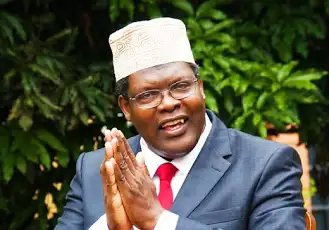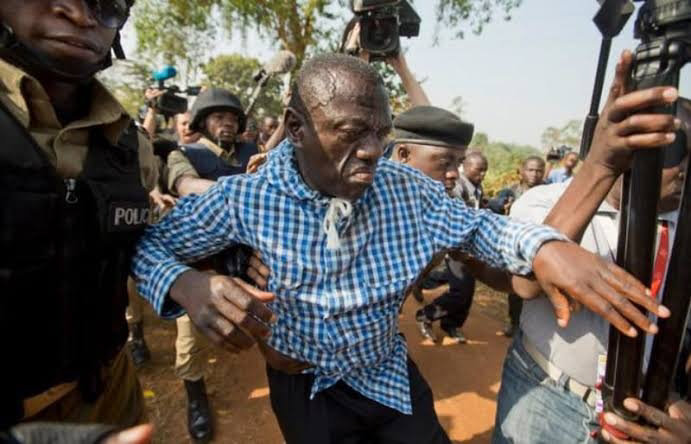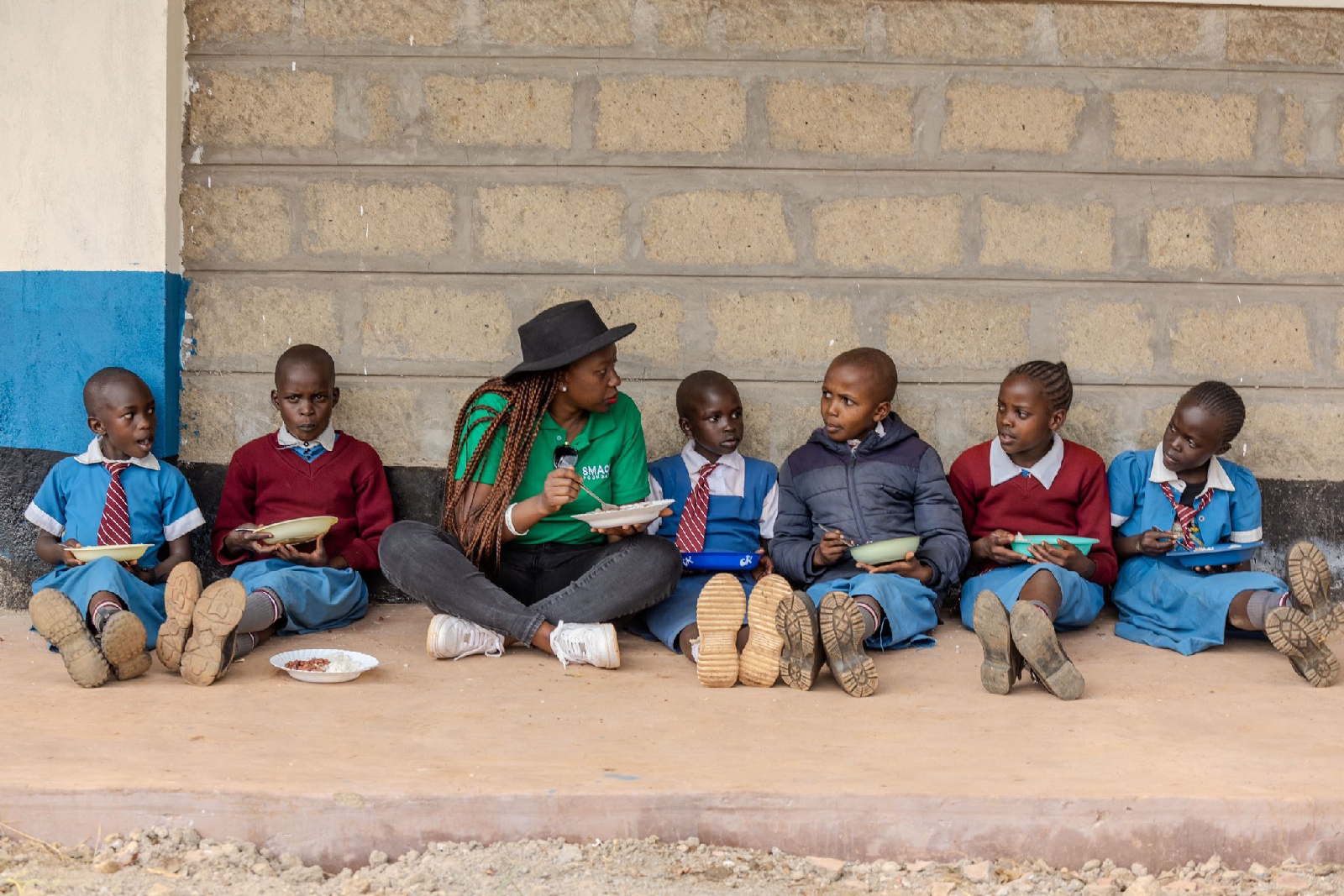TRULY AS THEY SAY A GOOD DANCER SHOULD WHEN TO LEAVE THE STAGE
In Kenya's political history, several leaders have emerged as beacons of good governance, tirelessly fighting for democracy, accountability, and the rights of the ordinary citizen. Their contributions have been pivotal in shaping Kenya's political landscape, particularly in the quest for multi-party democracy and the broader fight for justice and equity. Among these leaders are figures such as Hon. Mukhisa Kituyi, Rt. Hon. Raila Odinga, Hon. James Orengo, the late Jaramogi Oginga Odinga, the late Hon. Wamalwa Kijana, and the late Kenneth Matiba. Each of these individuals left a lasting legacy, although contemporary political choices have led to some criticism, particularly in light of ongoing issues like the privatization of the Jomo Kenyatta International Airport (JKIA).
Hon. Mukhisa Kituyi
Mukhisa Kituyi, a prominent political figure and former Secretary-General of the United Nations Conference on Trade and Development (UNCTAD), has consistently stood out for his bold and sober critique of bad governance in Kenya. His political activism dates back to 1992, during the multi-party struggle. Kituyi, known for his principled stand and intellect, has always emphasized the need for reforms and sound governance structures.
He has been vocal on issues affecting the nation, advocating for economic justice and the protection of Kenya’s democratic space. His criticism has never been overly sensational, rather, it is rooted in a sober analysis of the country's political and economic environment. Kituyi’s approach is measured and solutions-oriented, often focusing on the larger vision for Kenya’s growth and prosperity.
Despite his global stature, Kituyi remains deeply concerned about Kenya’s governance trajectory. He has spoken against corruption, the centralization of power, and the erosion of democratic ideals. As a leader, his voice continues to resonate with those who seek long-term solutions to the challenges Kenya faces.
Rt. Hon. Raila Odinga
Raila Odinga is arguably one of the most iconic figures in Kenya's political history. Over the years, he has earned the nickname "The People's President" for his relentless fight for the rights of the ordinary mwananchi (citizen). His journey in the fight for multi-party democracy, electoral justice, and equitable development has made him a household name, not just in Kenya, but across Africa.
Raila's political career has been marked by numerous personal sacrifices, including imprisonment and exile, as he fought against oppressive regimes and called for reforms. His role in pushing for constitutional changes, including the promulgation of the 2010 Constitution, is among his crowning achievements. He consistently positioned himself as a champion of the common man, challenging government excesses and advocating for inclusive governance.
However, in recent years, Raila’s political choices, particularly his support for the privatization of JKIA and his cooperation with President Uhuru Kenyatta under the "handshake" deal, have attracted significant criticism. Many feel that Raila has abandoned his earlier stances on good governance and justice. The "handshake" marked a shift in his political direction, as he appeared to align with the very forces he once opposed.
Critics argue that Raila, once the voice of the oppressed, has now adopted a more conciliatory tone that compromises his earlier ideals. His support for initiatives like the JKIA privatization, seen by many as a move to enrich the elite while disregarding the welfare of the masses, has cost him substantial grassroots support. This shift has led some to argue that a good leader should know when to exit the political stage, lest they undo their legacy.
Hon. James Orengo
James Orengo is another formidable figure in Kenya’s political and legal landscape. A Senior Counsel, Orengo has built a reputation as a staunch defender of the rule of law and the rights of ordinary citizens. His political activism, like that of Raila, dates back to the 1990s, when he played a critical role in the push for multi-party democracy.
Orengo has always been a vocal critic of authoritarianism and corruption, using his legal acumen to challenge government excesses. He has participated in numerous high-profile legal battles, often representing marginalized groups and advocating for constitutionalism. Orengo's commitment to defending the constitution and upholding justice has earned him respect across the political divide.
Even today, Orengo remains an influential voice in Kenyan politics, often taking principled stances on issues affecting governance and the law. His defense of democratic institutions and his continued advocacy for the rights of the mwananchi have made him a key figure in the ongoing struggle for good governance.
Miguna miguna
He is one of those layers and political activist who have been on the forefront in fighting against bad regime his consistence across all reginems if notable
It is true that his concern for the common mwanainchi is genuine unlike some who pretend only to use the majority to burgain history may remember such an icon Kenyan native fondly he is known to have taken the high risks that no one ever did only to notice whoever he was working for did stay up to his word leading to him being exiled during the previous regime
Late Jaramogi Oginga Odinga
The late Jaramogi Oginga Odinga is one of the most revered figures in Kenya’s political history. As the father of the nation’s second liberation, Jaramogi played an instrumental role in the fight for multi-party democracy and the push for more inclusive governance. His decision to reject the premiership in favor of supporting Jomo Kenyatta’s release from colonial detention made him a national hero.
Throughout his political career, Jaramogi remained committed to the ideals of justice and democracy. He was a vocal critic of single-party rule and fought tirelessly for Kenya to embrace multi-party democracy, a fight that would only bear fruit long after his death. His legacy as a champion of democracy continues to inspire many in the country.
Late Hon. Wamalwa Kijana
The late Michael Wamalwa Kijana, former leader of the Forum for the Restoration of Democracy (FORD-Kenya), was another key figure in Kenya’s second liberation. Wamalwa, known for his eloquence and charismatic leadership, played a crucial role in the fight for multi-party democracy. He was one of the few leaders who dared to challenge the autocratic rule of President Moi, advocating for a more democratic and just society.
Wamalwa's contributions to Kenya’s political reforms were significant. His leadership of FORD-Kenya, alongside figures like Jaramogi and Matiba, galvanized the opposition and laid the foundation for the political changes that would follow in the 1990s.
Late Kenneth Matiba
Kenneth Matiba was a fearless leader who made immense personal sacrifices in the fight for Kenya's second liberation. His detention and subsequent suffering under President Moi’s regime only strengthened his resolve to push for political change. Matiba’s courage and determination in the face of immense adversity made him a symbol of resistance against dictatorship.
Matiba's role in the formation of the multi-party system and his relentless fight for electoral reforms left an indelible mark on Kenya’s political history. Though his health deteriorated following his detention, Matiba’s legacy as a freedom fighter and advocate for democracy remains intact.
The JKIA Privatization Debate
In light of the legacies left by these leaders, the recent move to privatize JKIA has sparked widespread criticism. Many view the privatization as a dangerous and potentially catastrophic decision, especially given the importance of JKIA as a national asset. The concern is that privatizing Kenya’s most important airport will primarily benefit a few elites while undermining national interests and jeopardizing the future of Kenya Airways.
For leaders like Raila Odinga, who once championed the cause of the common mwananchi, supporting such policies raises questions about the alignment of their current political choices with the ideals they once fought for. While privatization is often justified as a means to improve efficiency, critics argue that it represents a betrayal of public trust and a departure from the vision of a government that prioritizes the welfare of all its citizens.
In the end, as Kenya continues to grapple with these challenges, the voices of those who have fought for good governance must not be silenced. Their legacies should remind the nation that leadership is about standing with the people, even when the path is difficult.





Comments
Post a Comment